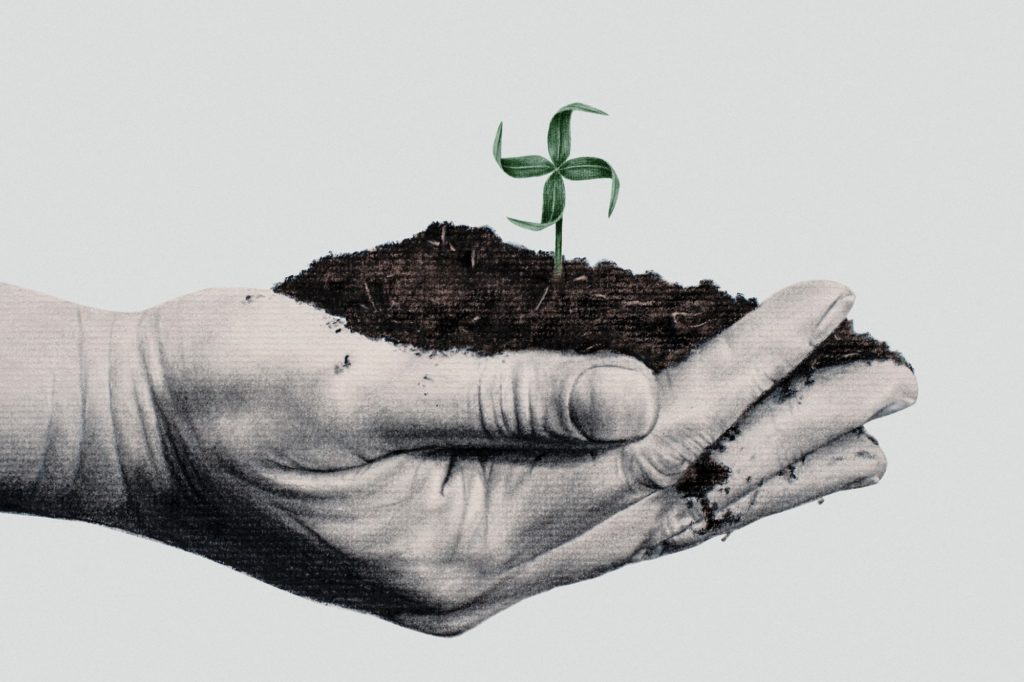
Once a month, we put together a list of stories we’ve been reading: things you might’ve missed or crucial conversations going on around the web. We focus on environmental and social justice, cities, science fiction, current events, and political theory.
We try to include articles that have been published recently but will last, that are relatively light and inspiring, and are from corners of the web that don’t always get the light of day. This will also be a space to keep you up to date with news about what’s happening at Uneven Earth.
This month, we’re featuring a lot of analysis on climate politics: the climate strikes, climate apartheid, and the rise of fascism along with it. We are also featuring, as usual, many reports and articles documenting the ongoing Indigenous and land rights struggles around the world. We also highlight a debate that started with Jonathan Franzen’s article in the New Yorker, which mixes climate “realism” with a denial of the power of collective power, in favor of individual action.
We continued to collect analyses about the Amazon forest fires and Bolsonaro’s Brazil. A month after the crisis hit the news, articles coming out now are much more measured and well-researched, digging into the connections between global capital, our very own pension funds, and deforestation in the Amazon.
Finally, analysis and debate about degrowth is picking up again. On the left, there was surprising coverage of the movement in The New Republic and Current Affairs. World-famous scientist and analyst, Vaclav Smil, has just released an authoritative book on the science of degrowth. There was also an interesting debate where Leigh Phillips, author of Austerity Ecology, published an article denouncing degrowth. In four separate replies to his piece, scientists and authors took apart each of his arguments and countered them pretty effectively. We feature the debate here.
Uneven Earth updates
Last stand on Ménez Hom | Link | At the top of the Ménez Hom, between the earth and the sky, history had displayed the ability to repeat itself.
Life in flames | Link | On pain and hope in the aftermath of catastrophic fires in Bolivia’s Chiquitanía and Amazon regions
The vine underground | Link | “The unthinkable had happened. No one plans for the end of their own world.”
Destructive space-time | Link | How war bombs and resource extractivism compress past, present, and future
Top 5 articles to read
Indigenous people are already working “green jobs” — but they’re unrecognized and unpaid
Wendell Berry’s lifelong dissent
Rethinking cities, from the ground up – Whose society? Whose cohesion?
The Toxic Valley. How global industry turned a once green Turkish province into an environmental wasteland.
First as tragedy, then as fascism. Ecologist Garrett Hardin’s enduring gift to the nativist right.
News you might’ve missed
From Qatar to Vietnam, global heating is making the workplace deadly for millions
$1m a minute: the farming subsidies destroying the world – report
Suddenly, the world’s biggest trade agreement won’t allow corporations to sue governments
Nuclear cannot help against climate crisis
Jakarta’s sea level prompts a move – at a price. And also, where they are planning to build the new capital, there seems to be a conservation forest in the way…
‘When is this going to end?’: Indonesians shrouded in toxic haze
The sinking class: the New Yorkers left to fight the climate crisis alone
Where we’re at: analysis
Climate apartheid will only lead to more tragedies in the Mediterranean
10 ways that the climate crisis and militarism are intertwined
Open borders must be part of any response to the climate crisis
Naomi Klein: ‘We are seeing the beginnings of the era of climate barbarism’
Dark crystals: the brutal reality behind a booming wellness craze. Demand for ‘healing’ crystals is soaring – but many are mined in deadly conditions in one of the world’s poorest countries.
Socialism with a bit of greenwash can’t save the planet either
What went wrong with African liberation?
Failed decolonisation of South African cities fuels violence
Bolsonaro’s Brazil
Brazil’s Amazon crisis is rooted in its fascist past
Blackstone CEO is driving force behind Amazon deforestation
As the Amazon burns, students call on Harvard to divest from farmland holdings
Understanding the fires in South America
Amazon fires: Follow the money
Land and water protectors and Indigenous struggles
We can’t ‘drink oil’ Indigenous water activist tells UN
‘Our water is our gold’: Armenians blockade controversial mine
Eco-protesters fight Moscow’s attempt to ‘trash’ Russia’s north
A Brazilian Indigenous leader shares his climate solutions
Revolutionary socialism is the primary political ideology of the Red Nation. Position paper from the Third General Assembly of the Indigenous organization The Red Nation.
Interactive: Plundering Cambodia’s forests
In 2003, a farmer killed himself to protest globalization. Little has changed.
Thai activists risk murder, abduction in fight for land rights
Communities in Africa fight back against the land grab for palm oil
Climate strikes
Twenty-five years before Greta, there was Severn and we ignored her. Time is running out to make transition to low-carbon future safe, just and inclusive.
The climate strikes are about so much more than green colonialism. Solutions to the environmental crisis won’t come in the shape of a battery – they come in the shape of justice, reparations and equity.
About the climate strike and the dark side of the ‘green new deal’ from Rojava.
Why citizens’ assemblies on climate change work
The potential for art as a vehicle for transformation
Climate de-nihilism versus climate rage
What if we stopped pretending? by Jonathan Franzen sparked an online debate about the merits of and issues with claims that it’s too late to take meaningful climate action. Franzen’s take: “The climate apocalypse is coming. To prepare for it, we need to admit that we can’t prevent it.” This Twitter thread by climate activist Dr. Genevieve Guenther takes apart Franzen’s article and argues for an activist approach. And Mary Annaïse Heglar writes that Home is always worth it and that “doomer dudes” are “climate de-nihilists.”
Green fascism
The far right’s eco-fascism — greenwashing hate
Ecofascism: When far-right ideology fuses with ecology
Why white supremacists are hooked on green living
Just think about it…
Humanity and nature are not separate – we must see them as one to fix the climate crisis
To decarbonize we must decomputerize: why we need a Luddite revolution
Capitalism ‘solves’ the nitrogen crisis: A brief history
For Rachel Carson, wonder was a radical state of mind
The hellish future of Las Vegas in the climate crisis: ‘a place where we never go outside’
New politics
‘Development’ is colonialism in disguise. A review of the new book, Pluriverse: A Post-Development Dictionary.
Cities and radical municipalism
Keeanga-Yamahtta Taylor says there is no housing crisis: ‘It’s just housing under capitalism’
Why are American homes so big?
Barcelona’s car-free ‘superblocks’ could save hundreds of lives
How the fight for this immigrant neighbourhood became a fight for all immigrant neighbourhoods
Mutual aid networks go beyond disaster relief. They offer community empowerment.
Notes on process for assemblies
French city of Dunkirk tests out free transport – and it works
What went wrong for the municipalists in Spain?
“Pan-African social ecology” illustrates liberation in direct democracy
Degrowth!
Vaclav Smil: ‘Growth must end. Our economist friends don’t seem to realise that’
‘Mindless growth’: Robust scientific case for degrowth is stronger every day
Önsketänkande med grön tillväxt – vi måste agera. An op-ed by earth-system scientist Johan Rockström of Stockholm Resilience Center cites the article “Is green growth possible?” by Jason Hickel and Giorgos Kallis. Rockström retreats from his earlier advocacy of green growth and argues that we need to act politically for more far-reaching change—starting with setting a final date for all fossil fuels.
We need a fair way to end economic growth. The recent mainstream endorsements of degrowth ideas might be a good thing, but: “The left should be monopolizing a controlled and deliberate degrowth strategy because if it doesn’t do it, the rich and their authoritarian, ideological vanguard will. And it will be ugly.” And a similar argument from The New Republic: The delusion and danger of infinite economic growth.
The sequel: life after economic growth
The degrowth delusion. The critique of degrowth by Leigh Phillips as “unnecessary, unjust, and the end of progress”.
And the four responses:
Growing pain: the delusion of boundless economic growth
Is the degrowth movement delusional?
Why degrowth is the only responsible way forward
Utopia, sci-fi, and the apocalypse
Ursula K. Le Guin’s revolutions. Le Guin’s work is distinctive not only because it is imaginative, or because it is political, but because she thought so deeply about the work of building a future worth living.
We should all be reading more Ursula Le Guin
Latin American film series offers a decolonial look at science fiction
Resources
Minim Municipalist Observatory. A database with links to articles, reports and academic papers on municipalism, and updates on the municipalist movement.
Tracking your plastic: Exposing recycling myths. A CBC news documentary about the plastics recycling industry and its environmental impact in Malaysia.
A guide to disrupting white nationalists in your community
A blueprint for Europe’s just transition
Want to receive this as a newsletter in your inbox? Subscribe here.
